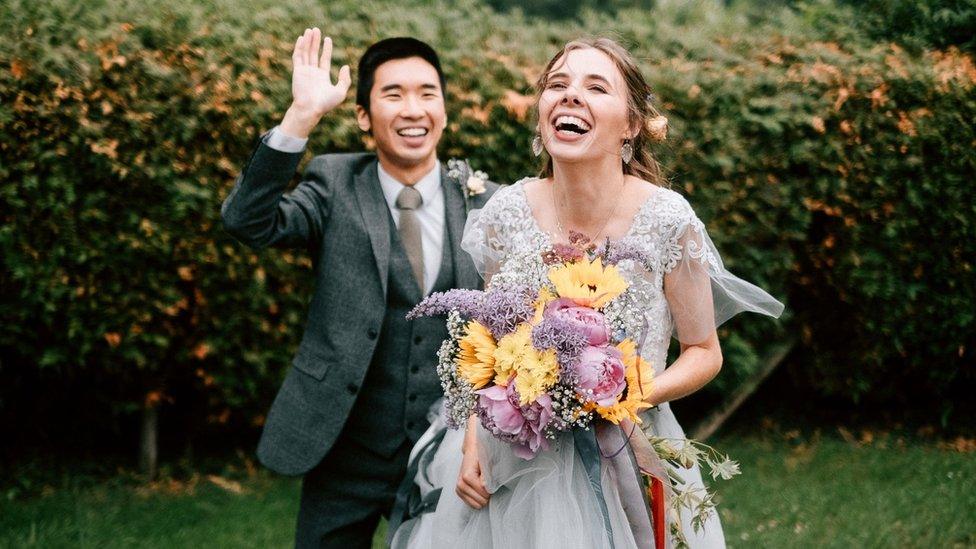Covid and weddings: 'All my bridesmaids were wearing masks'
- Published
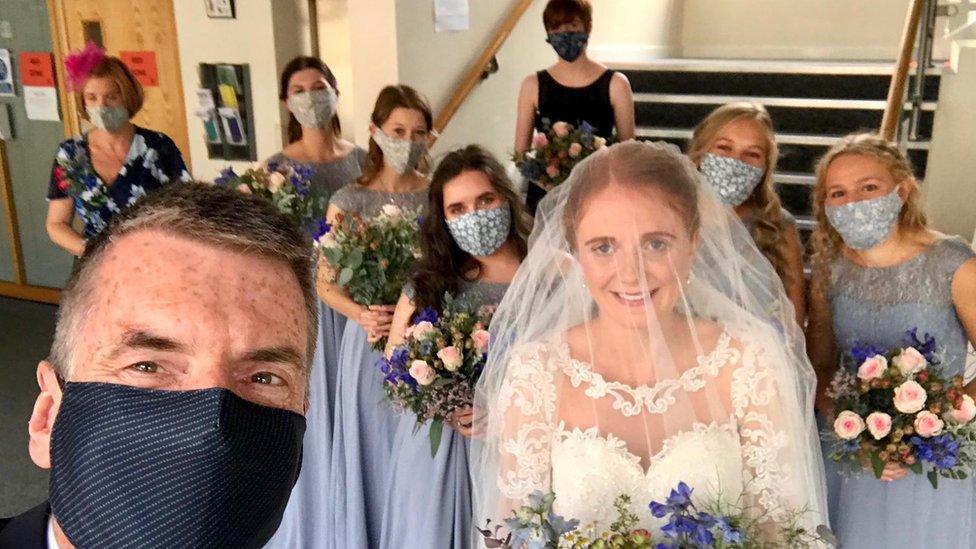
Ella was walked down the aisle by her dad who was wearing a mask after coronavirus rules changed
When Ella Ashford from Cardiff walked down the aisle, her husband-to-be was waiting for her wearing a face mask.
Due to the coronavirus pandemic, couples have said changing restrictions have meant having to make last-minute changes to their big days.
Ella, 24, who got married a day after face coverings became mandatory, said it made no sense her dad - who she lived with - also had to wear a mask.
The Welsh Government said it had been consistent in its guidance for couples.
In Wales, weddings and civil partnerships can go ahead after rules were relaxed at the end of June, but under social-distancing rules and with receptions limited to 30 people.
Since rules changed on 14 September, the wearing of face coverings has been mandatory in all indoor spaces in Wales, including places of worship and register offices.
Under the Welsh Government guidance, external all guests and brides and grooms have to wear face coverings, but couples are allowed to remove them for "a kiss, taking vows, and the first dance" - as long as guests stay two metres away.
Venues serving alcohol now have to close at 22:00 and, in areas under local lockdown rules, people are allowed to attend ceremonies inside and outside their county but not receptions.
'It all seemed really silly'
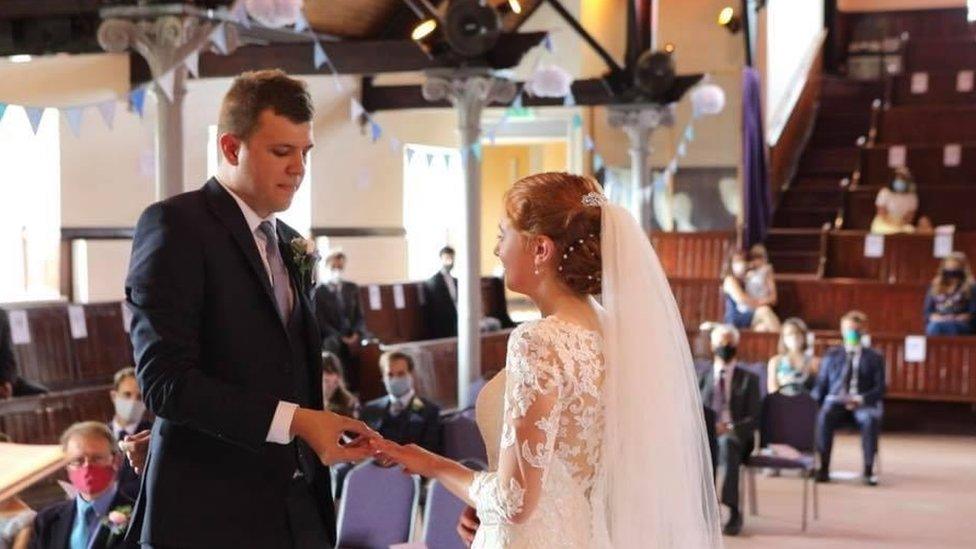
Ella and James Ashford were allowed to take their face coverings off to exchange vows
After getting engaged at a picturesque bay in Pembrokeshire in January, Ella and James had been looking forward to tying the knot in front of their loved ones.
But after making numerous changes as restrictions changed, face coverings became mandatory in Wales just days before the Ashfords' big day.
"I was quite upset when I found out - I thought I was going to look silly walking up the aisle in a mask with my wedding dress," said Ella, an occupational therapist.
But in the end, the church in Cathays allowed her to wear her veil as a face covering as she walked to meet her fiance, who was wearing a mask.
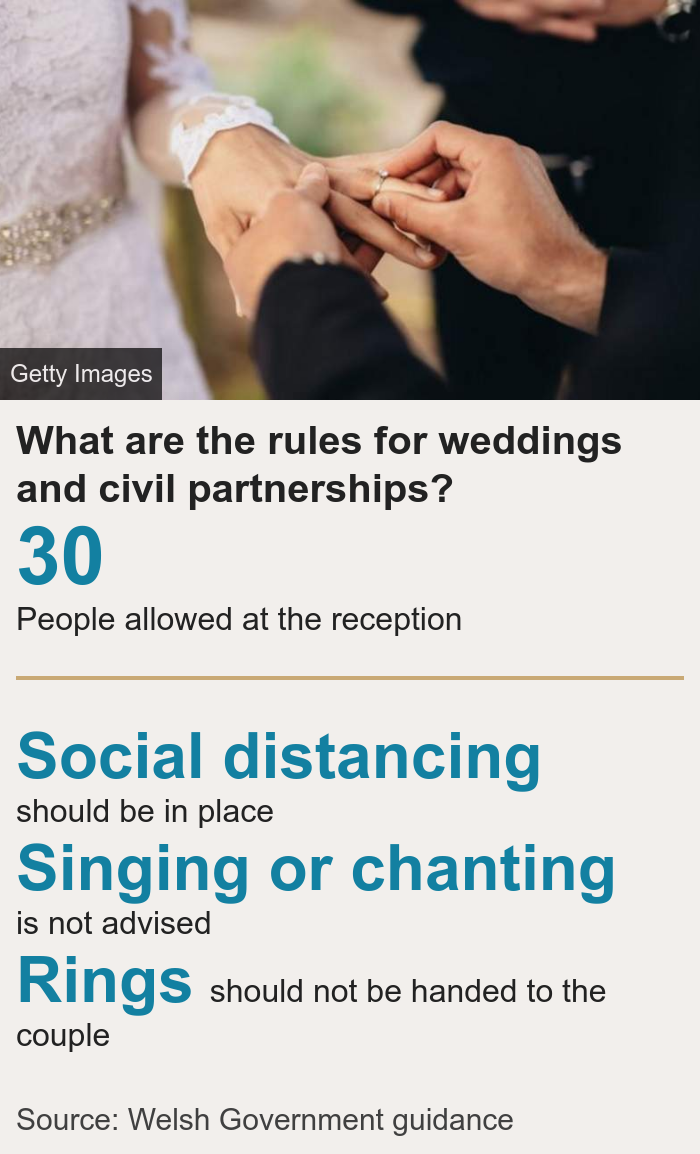
Under the rules, people do not have to wear coverings when eating or drinking, so the church gave the couple drinks and they walked back down the aisle toasting their guests.
But when she sat down to listen to the readings and sign the register, 24-year-old Ella had to put on a pink mask left on her seat by her dad.
"My dad, who I live with, had to wear a mask to walk me up the aisle, which to me makes no sense," said Ella.
"My bridesmaids all had to wear masks walking up the aisle - that was sad. It seemed really silly."
Under regulations, only 30 people are allowed at receptions - including staff and the couple - while the numbers allowed at ceremonies depend on the size of the venue.
"We did think about postponing, but the way things are going we didn't know when things are going to get back to normal," says Ella, who live-streamed the ceremony for guests who could not attend.
"We wanted to get married, so we thought let's just go ahead.
"We wanted a lot of our friends and family there, but in the end we had a really lovely day. We are really thankful for how nice it really was."
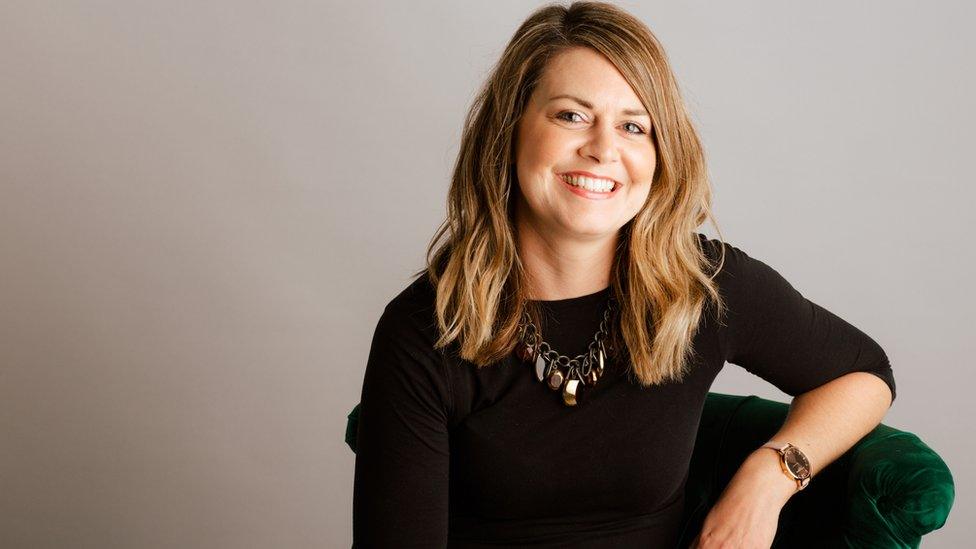
Wedding planner Carolyn Pearse got engaged just days before her home county got placed into lockdown
In England, new rules mean weddings and civil partnerships are limited to a maximum of 15 people, including the couple.
Carolyn Pearse, who plans weddings for couples getting married in both England and Wales, said the different rules were confusing and making people anxious.
The wedding planner, from Caerphilly, said she had decided quite early on to postpone all her ceremonies, and some couples had already postponed their big day twice due to the changing situation.
"We are trying to plan for so many different scenarios. I feel really sorry for clients, they don't know where they stand," she said, adding some suppliers, like florists, had been forced to close.
The couple were due to celebrate tying the knot in front of 300 guests
Carolyn, who got engaged to her partner just days before Caerphilly went into local lockdown, said she was not going to start making arrangements until things started to get a bit more back to normal.
"Couples understand that these things need to be in place, but they have lost all kind of excitement in planning their wedding," she said.
But she said that with guests limited, the pandemic may make people focus more on "quality over quantity" with smaller ceremonies.
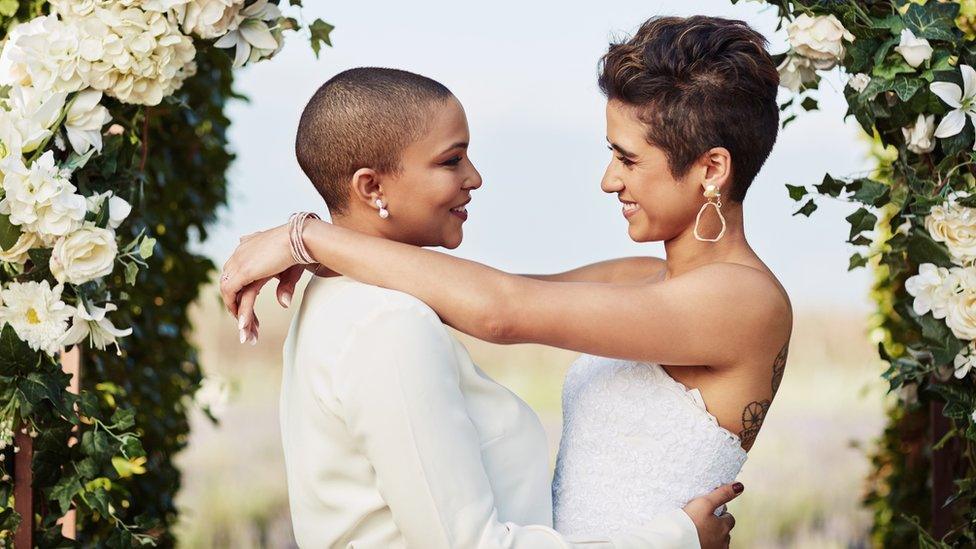
Weddings and civil partnerships had been banned in Wales following lockdown until 22 June
The Welsh Government said it had tried to "balance the hopes of people wishing to get married" during the pandemic with the "very real need to reduce the risk".
"We have made regulations and issued guidelines to enable weddings and civil partnerships to go ahead, which are kept under constant review," a spokesman said.
"We have been careful to provide consistency in our approach and have not had to reverse these requirements.
"We will always take decisions based on the scientific advice we receive, with people's health and wellbeing at the forefront."
- Published14 July 2021
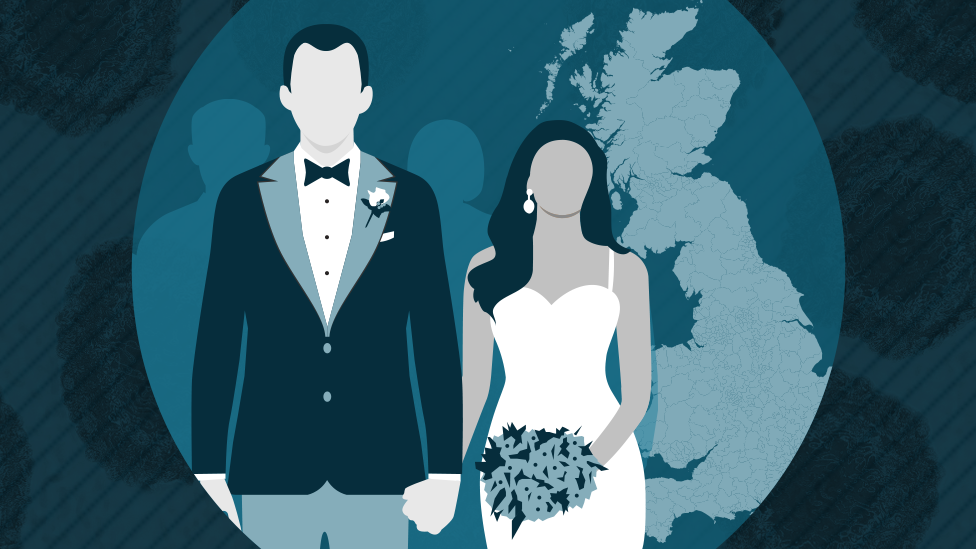
- Published22 September 2020
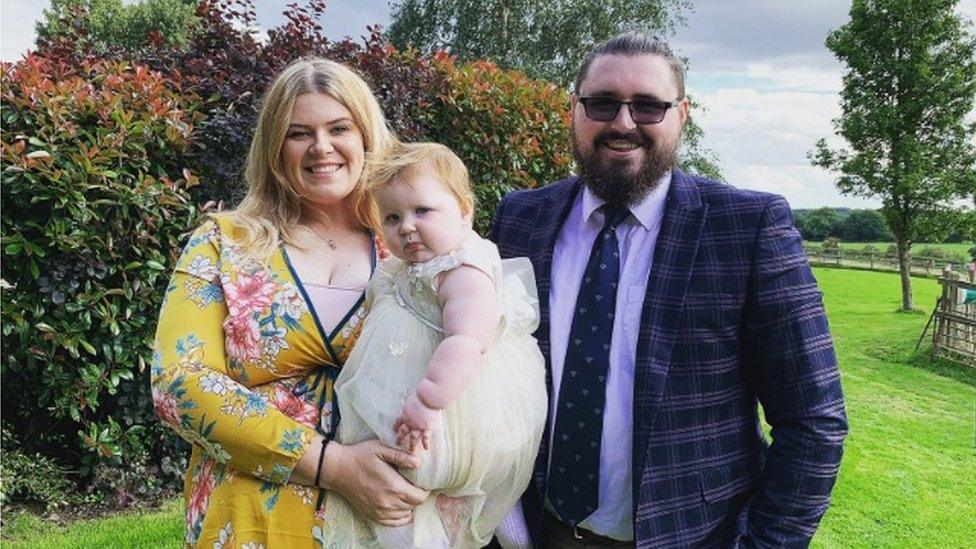
- Published1 July 2020
